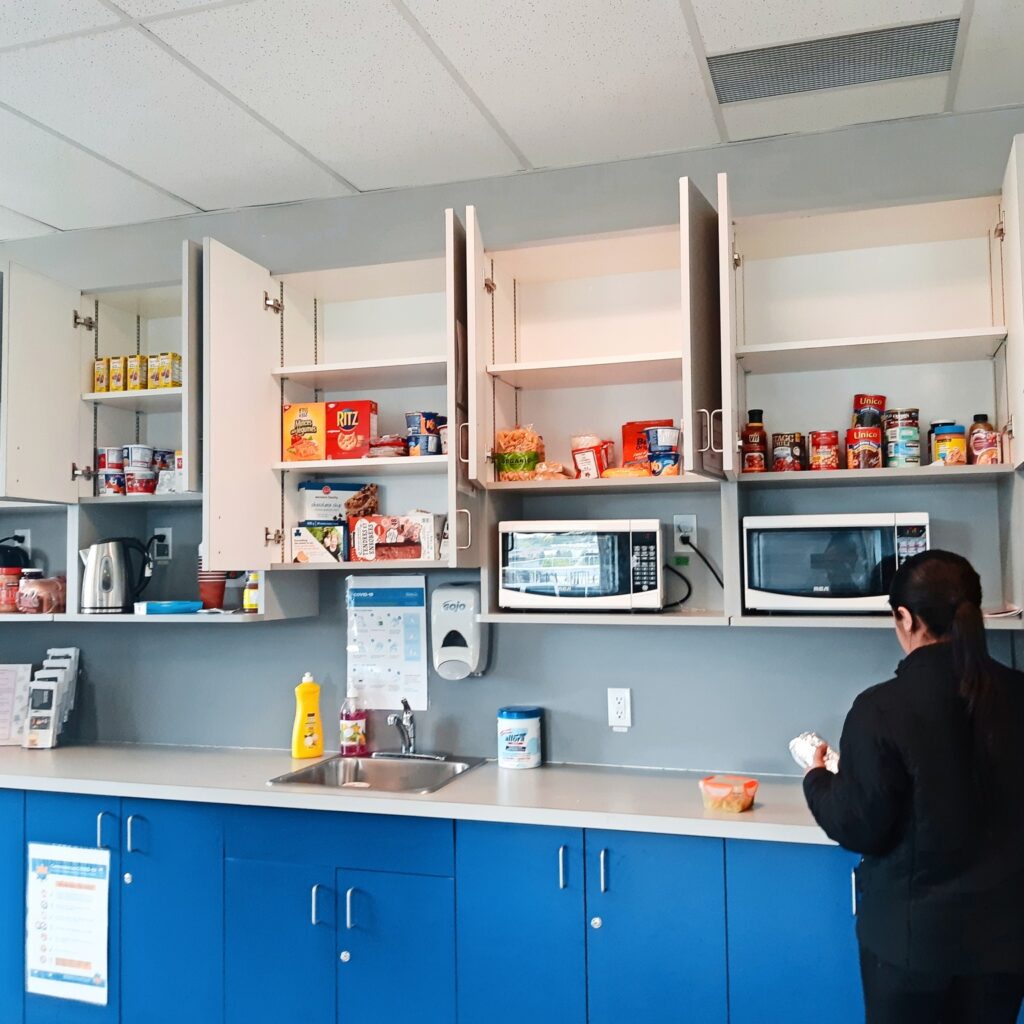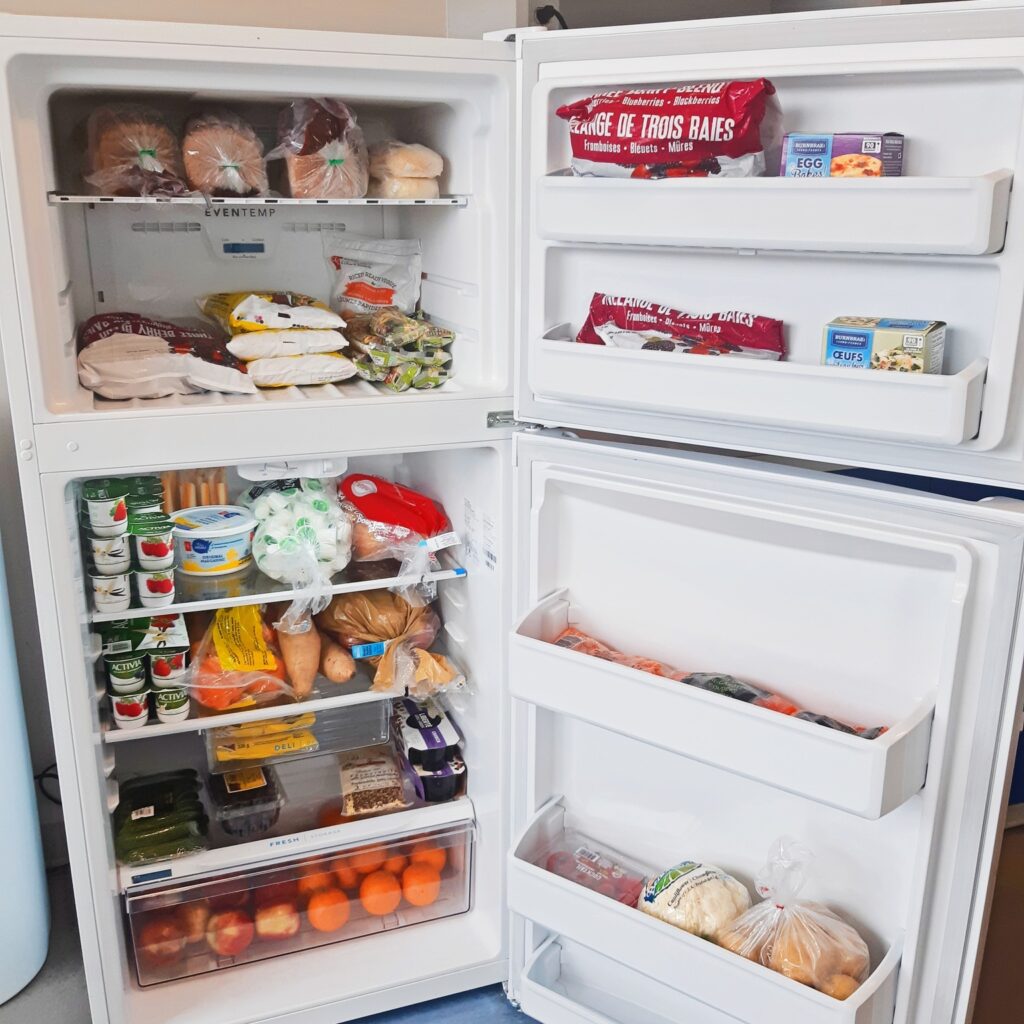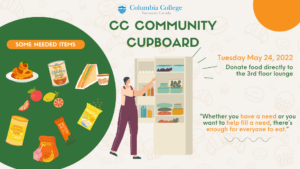General medical services are available to students at no charge.
First Aid Room and On-Campus Nurses
Currently Nurses are available in person and online via email and TEAMS for consultations with students. See us for a health assessment or if you have concerns about an illness or injury. We can help connect you with resources in your community, pass on nutritional advice, answer questions about medical insurance or help you to see a Doctor.
- Claire Goth at cgoth@columbiacollege.ca
- Kelly McIntyre at kmcintyre@columbiacollege.ca
Take home naloxone kits are available at the Nursing Station on the second floor. If the nurses are not available, please see the security desk on the ground floor.
Click here for more information about how to respond to opioid poisoning.
Click here for more information on substance use and staying safe.
Have questions? Contact our nurses at nurses@columbiacollege.ca
Seeing a Doctor in Canada
Reliable Medical Information: It is very important to find a trustworthy source of advice and information. Healthlink BC offers information about how to care for an illness or medical condition. If you have questions about what you have read or if you would like to speak with a live medical professional you can call 811, which is a service available 24 hours a day, to speak with a nurse or pharmacist.
How to see a Doctor in B.C. – Community Clinics
If you do not have a family doctor and aren’t feeling well, consider going to a walk-in medical clinic. These clinics can be found in most neighbourhoods across BC. They provide care for non-emergency medical issues. You do not need an appointment. Doctors in walk-in medical clinics conduct assessments make referrals when needed and write prescriptions.
Non-urgent medical conditions (minor infections, upset stomach, skin rashes, fever, immunizations, headache)
Non-urgent injuries (sore back, mild sprain / strain, cuts and bruises)
Bring your Columbia College ID and health insurance card (either Guard.me or MSP) if you don’t yet have MSP you may have to pay up front for medical care. You can submit a claim to your Guard.me insurance company and in most cases you will be reimbursed for 100% of your payment.
Students can connect to a Physician at a community clinic:
https://medimap.ca/ – If you have MSP (virtual MD and walk in availability)
https://app.getmaple.ca/register – If you have Guard.me (virtual MD)
Free Clinics (No Insurance needed) Specialize in sexual health and youth concerns: http://www.vch.ca/Documents/youth-clinics-LM.pdf (Currently closed. Call to see about openings in June 2020)
Students can connect to a Physician in person by accessing one of the Urgent Care Clinics:
https://www.healthlinkbc.ca/services-and-resources/upcc – Directory to either
http://www.vch.ca/your-care/urgent-and-primary-care-centres – Vancouver
https://www.fraserhealth.ca/Service-Directory/Services/primary-care-services/urgent-primary-care-centre#.XptOZchKg2x – Surrey, Burnaby, Maple Ridge
Hospital emergency rooms are for emergencies only: severe life threatening medical conditions, mental health emergencies, and severe injuries. Sometimes your family doctor will refer you to see a specialist doctor in a hospital but these are pre-set appointments that do not involve the emergency room.
You cannot walk in to a hospital and ask to see a specialist without a referral from your community such as a family doctor or a doctor at a walk in clinic or a referral from an emergency room physician.
If you are unsure of where to go (clinic or hospital) call 811, 24 hours a day and ask to speak with a registered nurse who can help you decide what is best for you. Bring a copy of your study permit to the hospital or your MSP insurance card (you can access your study permit through your student portal from your phone).
Having a good family doctor helps you to achieve wellness. A family doctor can track your medical history, offer advice on nutrition and fitness, and make referrals to specialist doctors when needed. To find a family doctor near you, call 811.
Other Medical Care in Canada
A pharmacy is a place where medicinal drugs are dispensed and sold. They are often located close to medical clinics. Prescription and non-prescription medications can purchased from a pharmacy. You can also ask a pharmacist for advice and information about home care treatments for minor ailments such as cold, flu, headache, upset stomach, cuts and scrapes.
Optometrists perform routine vision testing, prescribe eyeglasses and contact lenses, detect vision problems and eye disease, refer to specialists, prescribe medicines to treat some diseases of the eye, and provide care before and after eye surgery. Routine eye exams are not covered under your Medical Services Plan (MSP) but with your Guard.me insurance plan you are covered up to $125 for an annual vision health test. If you have questions or concerns about your eye health speak with the nurse.
Good preventative oral care such as flossing once and brushing twice a day with a soft bristle toothbrush is very important to maintaining good physical health. Drink water to help dilute the acids in your mouth and protect teeth from cavities. Limit beverage choices like sports drinks, coffee, diet sodas, or regular sodas as they may increase the chances for tooth decay. Routine dental checkups are not covered under your Medical Services Plan (MSP) or Guard.me plan. If you have questions or concerns about your dental health find a dentist or see the nurse for a list of lower cost dental clinics in your area.
Opt clinics provide non-judgmental birth control counselling and low cost contraceptives and supplies, sexually transmitted infection (STI) and Pap testing, pregnancy testing, options counselling, and general sexual health information and referrals. Services are offered for all ages, genders, and orientations. Call 604-731-7803 or visit www.optionsforsexualhealth.org
Staying free of disease and illness is another great way to feel good and stay physically well. Learn more about immunizations that are recommended in British Columbia.
Other Physical Health Resources
Juggling classes, assignments, studying, a social life and maybe even a part-time job while managing a tight budget is a definite challenge. Start the school year strong by making healthy eating a priority. Consult the Canada Food Guide. Eating well will fuel your mind and body to help you with your schoolwork, maintain a healthy weight, and keep your body strong to fight off germs.
The South Asian Health Institute (SAHI) was established to improve the health for South Asian people through innovation and evidence-based strategies. We understand the importance of culture and its impact on health, and aim to reduce chronic disease burdens as well as other emerging health issues for people in the South Asian community. https://www.fraserhealth.ca/health-topics-a-to-z/south-asian-health/south-asian-health-institute#.Ypp5tqjMKUl

According to the Canadian Society for Exercise Physiology, to achieve the health benefits from exercise people age 18 – 64 should accumulate 150 minutes of moderate to vigorous physical activity per week. The Physical Activity Line (PAL) is British Columbia’s primary physical activity counselling service and your FREE phone line and online resource to active healthy living. Call 811 with questions about fitness.
It is so important for you to get enough sleep before class. Adequate sleep helps to improve your memory, concentration, and motivation. When you are chronically tired the tasks of the day ahead seem unmanageable. You may find yourself making poorer choices that do not benefit your health and wellness. To figure out how much sleep you need to feel alert and energized in your day try using the Sleepyti.me bedtime calculator.
Columbia College is committed to promoting and maintaining a healthy and safe working and learning environment where all members of the Columbia College community are protected from exposure to smoking and tobacco use on all college campuses and properties. For more information please view the Smoke-Free Campuses policy on the Policies page.
Columbia College Community Cupboard (CCCC)


The Columbia College Community Cupboard (CCCC), a collaborative initiative with local non-profit organizations, offers healthy groceries for students. The cupboards are restocked on Mondays, Thursdays, and Saturdays, and students can access them while supplies last without prior registration. Alternatively, students can contact the CC Nurses at Student Services for additional food options.
More information on the Columbia College Community Cupboard (CCCC) can be found here.

The CC Community Cupboard
The Columbia College Community Cupboard opened on Tues, May 24 to support students who may be facing food security. Whether you have a need or you want to help

